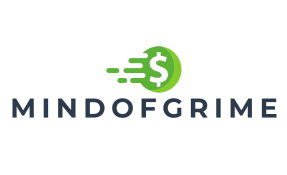Table of Contents
ToggleDebt can feel like that unwanted party guest who just won’t leave. It creeps in quietly, then suddenly it’s taking over your life, making every financial decision feel like a game of dodgeball. But don’t worry; there’s a way out of this chaos. With a variety of debt solutions available, it’s time to kick that pesky guest to the curb and reclaim your financial freedom.
Understanding Debt Solutions
Debt solutions provide methods for individuals to regain financial control. These strategies offer various ways to manage, reduce, or eliminate debt.
What Are Debt Solutions?
Debt solutions encompass tools and strategies designed to help individuals manage their financial obligations. These methods address both short-term issues and long-term financial health. Many people face overwhelming debts requiring tailored approaches suited to their situations. Financial experts recommend exploring different solutions based on specific needs.
Types of Debt Solutions
Several types of debt solutions exist to assist with various financial challenges.
- Debt Consolidation: Combining multiple debts into a single loan, simplifying payments into one monthly bill.
- Debt Settlement: Negotiating with creditors to reduce the total amount owed and finalize agreements for lower payments.
- Credit Counseling: Working with trained professionals to create budget plans and develop effective debt management strategies.
- Bankruptcy: A legal process that discharges certain debts, offering a fresh start but impacting credit reports.
- Debt Management Plans: Structured plans through non-profit agencies that negotiate lower interest rates and fixed monthly payments.
Exploring these options presents opportunities for financial recovery and stability.
Common Debt Solutions

Multiple debt solutions exist, each suited for different financial situations and needs.
Debt Consolidation
Debt consolidation combines multiple debts into a single loan, often with a lower interest rate. This process simplifies payments by merging numerous bills into one monthly payment. Many people choose personal loans or balance transfer credit cards for this purpose. By reducing the overall interest burden, individuals can pay off debt faster. Credit scores may improve when consolidating high-interest debts, making this an advantageous option for many.
Debt Settlement
Debt settlement involves negotiating with creditors to reduce the total amount owed. This strategy allows individuals to pay less than the original amount, reaching a settlement for a lump sum. Many settlement companies handle negotiations on behalf of clients, aiming to achieve the best possible outcome. Although this option can significantly lower debt, it may impact credit scores negatively. Individuals often consider debt settlement when overwhelmed with payments and seeking relief.
Bankruptcy
Bankruptcy serves as a legal process offering individuals a fresh financial start. Under Chapter 7, individuals can discharge most debts, while Chapter 13 involves a repayment plan over three to five years. It’s vital to understand that bankruptcy affects credit scores and public records. A critical advantage of bankruptcy is the automatic stay, halting collection efforts from creditors. This option is typically seen as a last resort when other solutions fail to provide relief.
Pros and Cons of Each Solution
Understanding the pros and cons of each debt solution aids individuals in making informed decisions.
Benefits of Debt Consolidation
Debt consolidation simplifies financial management by merging multiple debts into one loan. Lower interest rates often come with consolidation loans, which can lead to significant savings over time. Improved credit scores may result from consistent payments on a single debt rather than multiple sources. Furthermore, monthly payments generally become more manageable. This solution suits individuals struggling with high-interest credit cards or loans.
Drawbacks of Debt Settlement
Debt settlement poses risks alongside its advantages. Negotiating with creditors may result in reduced total debt owed but often harms credit scores. Creditors might only settle if individuals can pay a lump sum, which isn’t always feasible. Future borrowing can become more difficult following a settlement, potentially leading to higher interest rates. This option primarily benefits those unable to maintain ongoing payments.
Implications of Bankruptcy
Bankruptcy provides a capacity for a fresh financial start through legal protection. However, it has long-lasting effects on credit, often taking several years to recover. Individuals face asset liquidation in Chapter 7 bankruptcy, making this choice less appealing. Chapter 13 bankruptcy requires a repayment plan, which can strain budgets. While it offers relief, navigating the process requires careful consideration of its consequences.
Choosing the Right Debt Solution
Selecting an appropriate debt solution requires careful consideration of individual circumstances. Analyzing financial situations lays the groundwork for effective decision-making.
Assessing Your Financial Situation
Reviewing income, expenses, and outstanding debts provides essential insights. Analyze monthly budgets to pinpoint areas for improvement. Calculate total debt to understand financial obligations fully. Identify necessary living expenses, which helps establish how much can be allocated towards debt repayment. Evaluate credit scores to gauge potential impacts of various solutions on future finances.
Seeking Professional Advice
Consulting a financial advisor enhances the decision-making process. Advisors can offer tailored strategies aligning with unique financial situations. Understanding the implications of each debt solution can be complex, making expert guidance invaluable. Attorneys may also provide insight into bankruptcy options if that path seems likely. Utilizing professional expertise facilitates informed decisions, ensuring effective management or resolution of debt challenges.
Navigating debt can feel daunting but understanding the available solutions empowers individuals to take control of their financial futures. Each option has unique benefits and drawbacks tailored to different circumstances.
By carefully assessing one’s financial situation and considering professional advice, individuals can identify the most suitable path forward. Whether it’s debt consolidation, settlement, or bankruptcy, the right choice can lead to a more manageable and stress-free financial life.
Taking the first step toward resolving debt is crucial for long-term stability and peace of mind. With the right approach, financial freedom is within reach.










